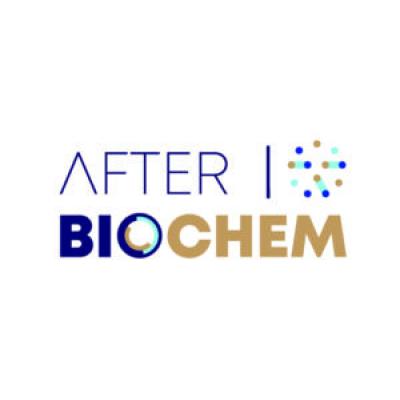Until 2017, sugar beet production in Europe was backed by an EU quota system. However, the ending of this system, combined with other factors, has led to a 30% fall in sugar prices. EU sugar beet producers have responded by increasing production, but against a backdrop of worldwide overproduction of sugar, this has added to price pressures.
We don’t have any waste at the end of the process, we recycle water in the process, and we will massively reduce CO2 emissions.
Nicholas Sordet, AFYREN CEO and co-founder
The CBE JU-funded AFTERBIOCHEM project has built a flagship biorefinery in Carling Saint-Avold, France. There, sugar industry by-products and other non-food agricultural biomass are turned into seven high-added-value bio-based organic acids for fragrances and flavourings, personal care, food and feed, and industrial chemicals, and a potassium-rich fertiliser.
A sustainable process
AFTERBIOCHEM brought together 12 partners at different stages of the value chain: four SMEs, seven large companies and one innovation cluster. The partners came from five European countries: Belgium, France, Germany, the Netherlands and Switzerland. They included German sugar producer Südzucker, Belgian nutritional products and services firm Kemin, French nail polish manufacturer Fiabila, and Dutch chemical company Celanese.
Based on 10 years of R&D by lead partner, French bio-based organic acid producer Afyren, the project’s core technology encompasses an all-in-one cutting-edge fermentation process that uses natural microorganisms, coupled with separation and transformation steps.
The process releases no hazardous substances into the environment and emits just one-fifth of the CO2 emitted by production of fossil-based organic acids. Optimisation of the process ensures also that no waste is generated, with all fermentation outputs turned into valuable products.
‘We don’t have any waste at the end of the process, we recycle water in the process, and we will massively reduce CO2 emissions. At the end of the process, we have a co-product, which is a high-value fertiliser with a very high potassium content, which will go back to the ground to start a new cycle of biomass production’, explained Afyren CEO and co-founder, Nicolas Sordet.
The developed technology allows the creation, at industrial scale, of multiple sustainable value chains that connect numerous sectors and reduce dependence on non-renewable resources. The acids are intended for use in a range of consumer products.
Replication plans
The biorefinery, which was inaugurated in September 2022, is located in France within the Chemesis industrial platform, a site containing facilities operated by several major chemical actors. It is close to its feedstock sources and helps to keep jobs in local and rural areas.
From the very beginning, the objective was to create a first plant whose model could be quickly replicated.
Nicholas Sordet, AFYREN CEO and co-founder
Over 60 direct and some 200 indirect jobs in manufacturing, construction and engineering have been created thanks to the project. At full capacity, the biorefinery is expected to produce 16,000 tonnes of acid a year.
Preparations are now being made for replication of the facility, with two additional plants planned to be built by 2027. Studies were performed to this end within the framework of AFTERBIOCHEM. Sites for the new installations will be chosen taking into account proximity to suitable feedstock and end users of the products. The potential for exploitation of food waste and organic household waste has also been explored.
‘From the very beginning, the objective was to create a first plant whose model could be quickly replicated. Our R&D platform and our industrial and commercial team will be key elements in the next stages of our expansion’, said Nicolas Sordet.
By extracting maximum value from sugar beet by-products, the Carling Saint-Avold biorefinery will boost the competitiveness and sustainability of a key European agro-industrial sector and pave the way for a fully circular chemical industry.







